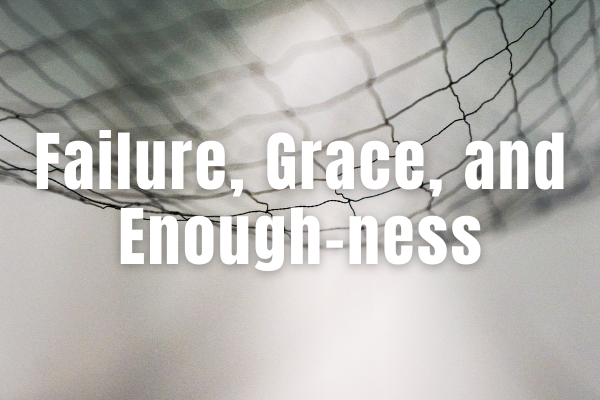021 - Failure, Grace, and Enough-ness
- TuesdayTribe

- Feb 23, 2021
- 4 min read
In 1859, Jules Léotard performed the first trapeze act in the Cirque Napoléon circus in Paris.

The act, clocking in at twelve minutes long, included a mid-air somersault and leaps from one trapeze bar to another. Léotard’s act was a huge success, and paved the way for other circus performers to develop the trapeze act into what it is known as today.
Léotard spent years practicing his act at his father’s house in Toulouse. He fixed a trapeze above the swimming pool, relying on the pool to be his safety net should he fall or make a mistake. When he was finally ready to perform in the circus, Léotard, though by now so good at his act that he rarely fell, still took the time to set up a safety net below his trapeze, this time using mattresses to pad his unlikely fall.
Besides leaving us the amazing garment of the leotard, which he would wear during his circus performances to showcase his muscles (you can’t make this stuff up), I think there are two things we can learn from Jules Léotard about failure, grace, and enough-ness.
First: from the very beginning, Léotard used a safety net. Whether it was the pool or the mattresses, he was willing to acknowledge the mistakes he would inevitably make. And yet, he did not let the prospect of making mistakes prevent him from embracing his passion and doing it anyway.
If you’re like me, you’ve told yourself that mistakes, failure, and shortcomings are detrimental to who you are. Somewhere along the line, someone told you (maybe it was yourself) that making a mistake made you a mistake; that failing meant you are a failure. And for those of us who have spent so long striving to be enough, mistakes and failures just don’t compute; we can’t make them make sense in our endless effort to achieve perfection.
Just like Léotard, you have a safety net, and it is your identity as a child of God. It will catch you when – not if – you make a mistake, and you’ll be able to climb that ladder back up to the trapeze and try again and again and again. We no longer need to concern ourselves with what happens to us when we fail; instead, we are free to do the things we love and be the people God created us to be, knowing that He will catch us – and our identity in his eyes won’t change when he does.
A few years ago at a Network for Teaching Entrepreneurship event in New York City, Sara Blakely, the founder of Spanx and one of the world’s youngest self-made billionaires (yes, billion with a b), told a story about how she was raised to think about failure. “My dad always encouraged me to fail, and because of this, he gave me the gift of retraining my thinking about failure. Failure for me became about not trying, instead of the outcome.”
Wouldn’t it be refreshing if we could get to this place, too? If we could actually look forward to failing because it meant we are trying, rather than just sitting on the sidelines of our own lives because we’re afraid of messing up?
The second thing we can learn from Léotard is that he didn’t care what others thought about him. Léotard is most famous for the incredible stunts he performed on the flying trapeze in the circus. Most people don’t know that prior to joining the circus, Léotard was studying to become a lawyer. I can’t think of any occupation that has more job security than a lawyer; they’re always in high-demand. In Léotard’s day, becoming a lawyer was a safe and logical career path. But Léotard didn’t want safe; he didn’t want logical. He wanted passion, risk, and stories that people would tell decades after he performed.
I doubt Léotard’s decision to put down his textbooks and pick up a trapeze bar was well received, but here’s the thing: he did it anyway. He refused to let others define him or succumb to an identity that wasn’t truly his. He chased who he was, even when other people didn’t like it. He embraced his enough-ness and didn’t let anyone question it or take it away from him.
I want that for you, and I want it for me. I want us to be so confident in who God says we are that we daringly chase being that person, even if we sustain a few scrapes and side-eyed scoffs along the way. Especially then.
Friend, you are good and you are enough. The only One who gets to say so is the One who will never say otherwise. And I don’t know about you, but I’m tired of handing the microphone over to other people or to the voice in my head and allowing them to define me, and I’m really tired of believing it and living out of it. I want to thrive in pursuit of the person God created me to be, not worrying about whether I make mistakes or disappoint others and ignoring the people who shout at me to stop. Don’t you?
Published in the 021 - February 23 issue of TuesdayTribe
Written by Hannah Hladek
Photo by Andrés Canchón on Unsplash
.png)



Comments